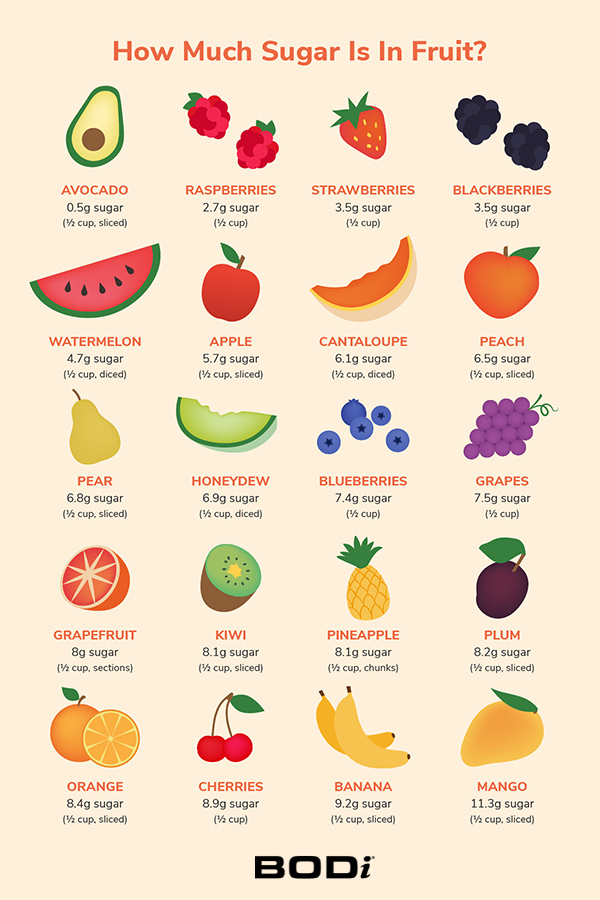Fruits are often referred to as nature's candy because they are a rich source of sugar in minimally processed whole foods. When the low-carb diet trend gained momentum, fruit came under scrutiny from diligent dieters seeking a nutritional advantage. While fruit is known to be packed with essential vitamins and minerals, many individuals question whether the sugar in fruit is detrimental to health.
Continue reading to gain insight into the sugar content of fruits and whether it should be a cause for concern.
Is Sugar in Fruit Harmful?
In short, no, you probably don't need to eliminate that daily banana. Health experts recommend reducing overall sugar intake, with a focus on cutting down on added sugars rather than the natural sugars found in fruits and dairy products. Natural sugars in fruits also come with fiber, which slows down the absorption of sugar in the body, helping to regulate blood sugar levels.
Instead of removing fruits from your diet, consider reducing consumption of sugary beverages like sodas, lattes, energy drinks, and refined carbohydrates such as cookies, cakes, and candies. Compared to these sugary treats, the sugar content in fruits is relatively low and offers nutritional benefits.
However, moderation is key as the sugar in fruits is still a form of sugar.
Can You Overconsume Sugar from Fruits?
Sometimes. While natural sugars in fruits are preferable to refined sugars, it is still possible to overindulge, especially for individuals with a strong sugar addiction or those aiming to lose weight. Excessive consumption of fruits can lead to the liver converting fructose into fat, which can contribute to weight gain and increase the risk of insulin resistance and type 2 diabetes over time.
Is Fruit Sugar the Same as Regular Sugar?
The sweetness in fruits, such as apples, primarily comes from fructose, which is the main sugar found in fruits. Fruits contain a mix of sugars, with sucrose (table sugar) being another common component. Sucrose is composed of fructose and glucose units, which are broken down into glucose in the body for energy. While sucrose can rapidly raise blood sugar levels, fructose metabolism is more complex.
When Should You Limit Fruit Consumption?
While some researchers caution against high fructose intake, it is generally advised not to eliminate fruits entirely from your diet. However, it may be wise to avoid highly processed fruit products like fruit juices and dried fruits, as they may lack the beneficial fiber content present in whole fruits.
How Much Sugar Do Fruits Contain?
If you're looking to reduce sugar intake, consider opting for fruits with lower sugar content. Here's a chart detailing the sugar content of 20 popular fruits:
*Chart displayed from least sugar to most sugar by grams.
| Fruit | Weight | Calories | Carbs | Fiber | Sugar* | % sugar by weight |
| Avocado (½ cup, sliced) | 73 g | 117 | 6.2 g | 4.9 g | 0.5 g | 1% |

